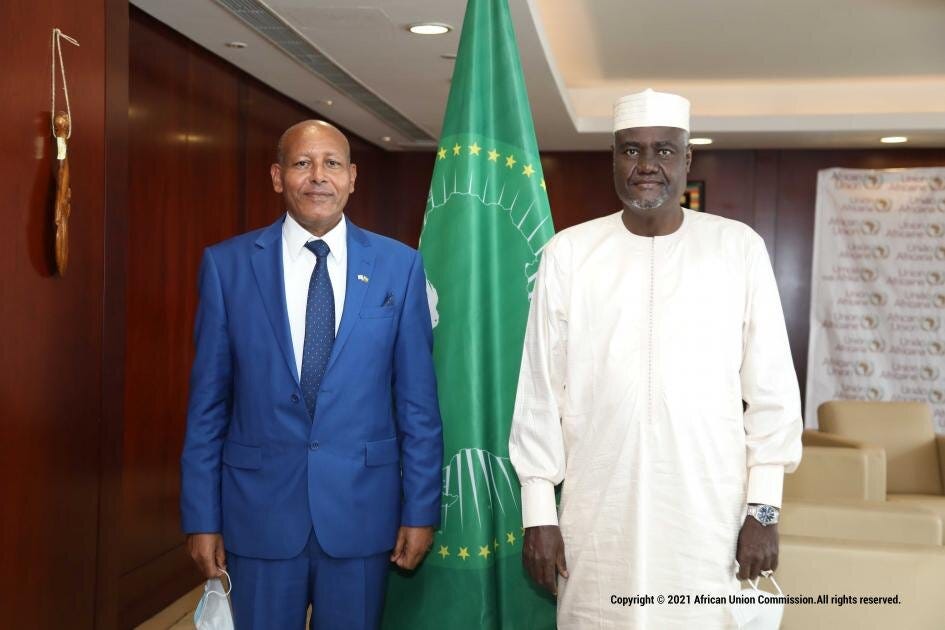Why African countries are objecting to Israel’s observer status at the African Union?
Israel has attained observer status in the African Union. Various member states have publicly objected to the decision. What is "observer status" and reasons behind the push-back?

On 22 July, Israel announced it had attained observer status in the African Union (AU) after two unsuccessful attempts. Since then, a growing number of the AU’s 55 member states including South Africa, Botswana, Namibia, Egypt, Tunisia and Libya have publically objected to the decision by the African Union Commission (AUC), the AU’s administrative body, to grant Israel Observer status. The South African government has stated the AUC had “taken this decision unilaterally without consultations with its members.” The question is then raised of the role of the AUC and how non-african states can become observers.
WHAT IS OBSERVER STATUS?
Observer status is a privilege given by organisations, such as the AU, to non-members to give them an ability to participate in the organisation's activities. In the AU, observer status is granted to non-governmental organisations and non-member states.
The criteria for obtaining observer status is firstly, the aims and purposes of non-African states or organisations wishing to be an observer must be in conformity with the spirit, objectives and principles of the AU. Secondly, the non-African state or organisation must be willing to cooperate with and support the work of the AU.
Observer states and organisations can:
be present for the open sessions of AU Conferences;
participate in the meetings of AU Organs;
and have access to AU documents as long as they are not confidential in nature.
HOW DOES A NON-AFRICAN STATE OR ORGANISATION GAIN OBSERVER STATUS?
A non-African state or organisation wishing to be an observer state has to communicate its request for accreditation to the Chairperson of the AU Commission. Israel has been requesting accreditation since the AU was created in 2002.
The Chairperson, in this case Chad’s Moussa Faki Mahamat, is then responsible for considering the request on the basis of the principles and objectives of the AU’s Constitutive Act. In the case of non- African states, the Chairperson must consider the supreme interest of the Union and the known views and concerns of member states.
Should any Member State object to the accreditation of a non-African State, the Chairperson must place the issue at the next session of the Executive Council. Following the public objections by several member states, Faki has defended his decision and has stated the decision will be included in the agenda of the forthcoming session of the Executive Council.
WHY DOES ISRAEL WANT OBSERVER STATUS?
There are over 80 states with observer status at the AU, including the United Kingdom, France, China, Russia and Palestine. Observer status in the AU will give Israel access to address member states during meetings enabling dialogue between states who are reluctant to engage with Israel. Additionally, this will legitimise Israel and pave the way for the state to take part in Africa-wide projects.
However, considering Israel already has working partnerships with 46 of the AU’s member states, there appears to be more to their fixation on gaining observer status. For example, Palestine’s observer status enables it to gain influence over the AU’s position in international discussions in favour of Palestine. With observer status, Israel will now have the same opportunity to influence the AU and its member states’ stance on the Israel/Palestine conflict.

WHY ARE COUNTRIES OBJECTING TO ISRAEL BECOMING AN OBSERVER STATE?
South Africa and other objecting states assert that “Israel continues to illegally occupy Palestine in complete defiance of its international obligations and relevant UN resolutions.” This occupation of Palestine goes against the spirit, objectives and principles of the AU.
The action by the AUC is perplexing considering its recent condemnation of the bombardments in the Gaza Strip that killed more than 21 Palestinians in May. The AUC Chairperson has however reiterated the AU’s “unflinching commitment of the PanAfrican Organisation to the fundamental rights of the Palestinian people, including their right to establish an independent National State, with East Jerusalem as its Capital…”
The latest reasoning from Israel’s Minisitry of Foreign Affairs states that “the parties will be able to cooperate, among other things, in the fight against COVID-19 and the prevention of the spread of extremist terrorism throughout the continent.” Others have refuted this, pointing to current Covid-19 efforts which are being supported largely by the UN and other donors.


